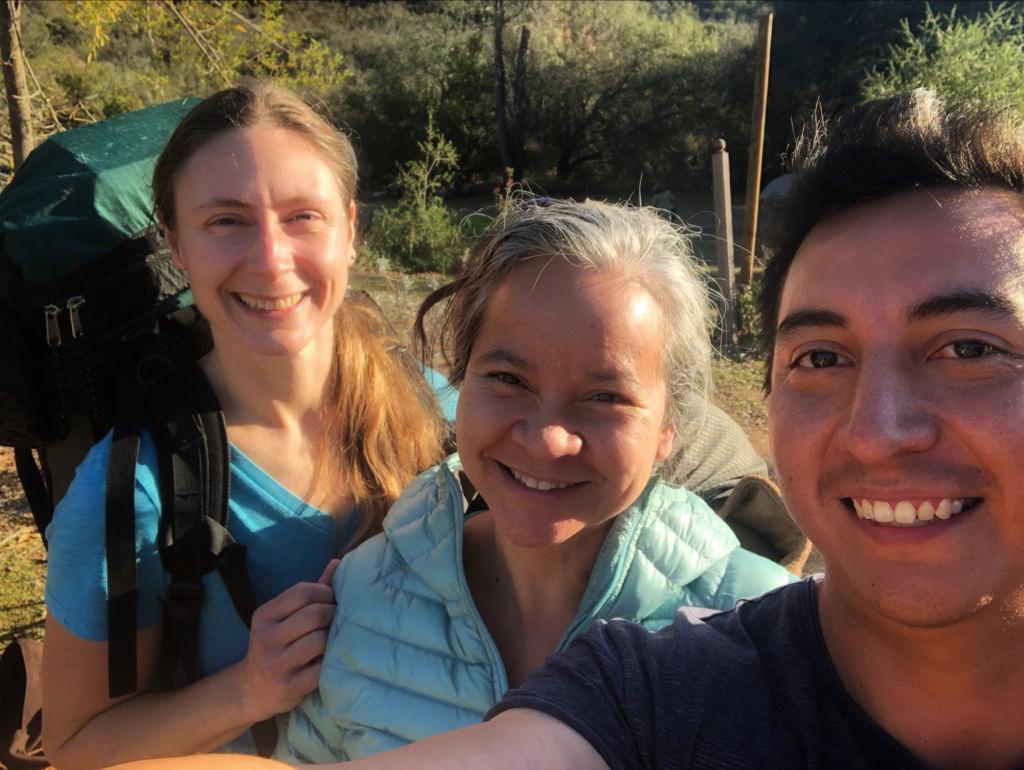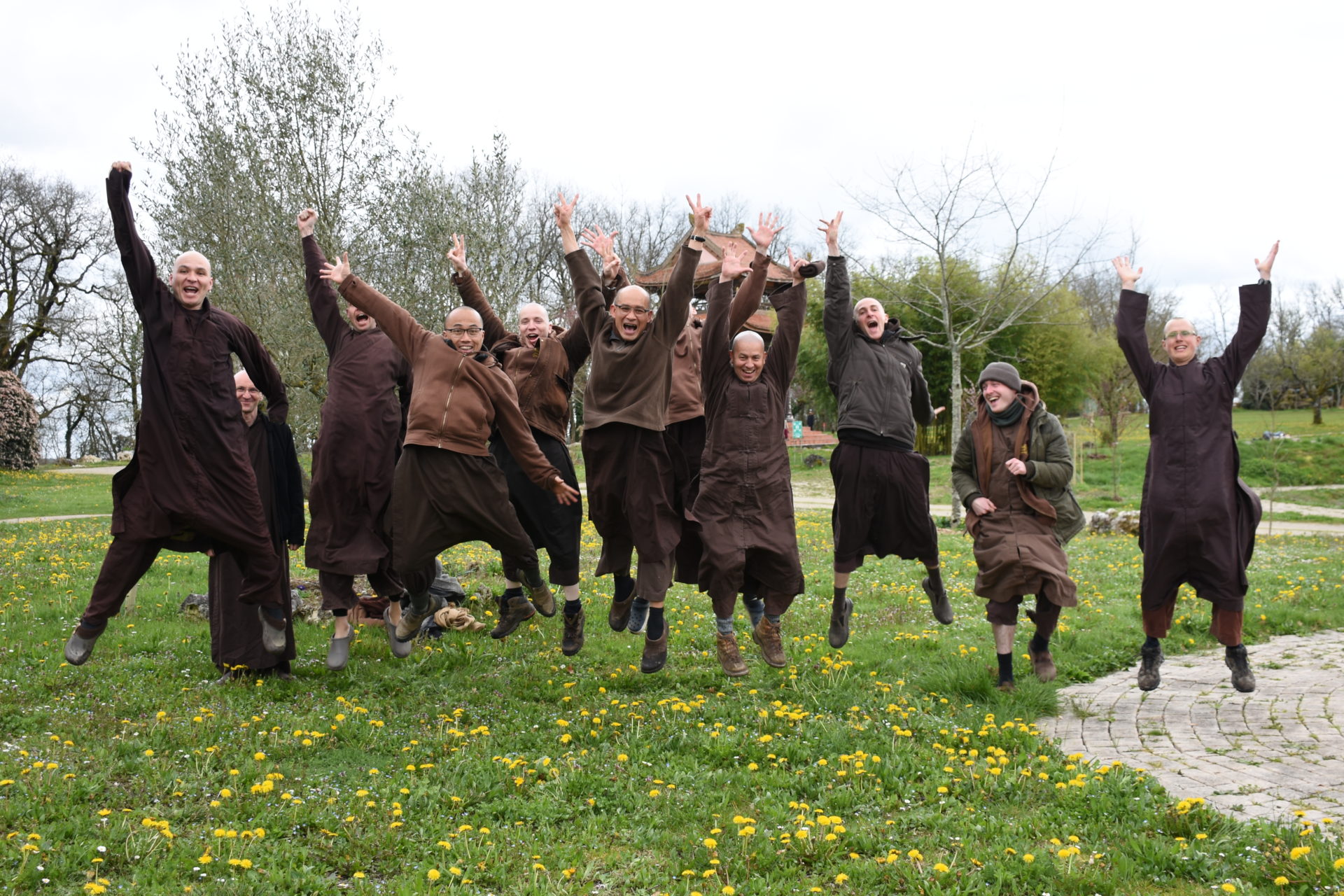By Alejandro Cerda

“The desire in us to obtain whatever it is that we want is called volition, the ground of all our actions. … Our notions about happiness entrap us. We forget that they are just ideas. Our idea of happiness can prevent us from actually being happy. We fail to see the opportunity for joy that is right in front of us when we are caught in a belief that happiness should take a particular form.”
Thich Nhat Hanh,
By Alejandro Cerda

“The desire in us to obtain whatever it is that we want is called volition, the ground of all our actions. ... Our notions about happiness entrap us. We forget that they are just ideas. Our idea of happiness can prevent us from actually being happy. We fail to see the opportunity for joy that is right in front of us when we are caught in a belief that happiness should take a particular form.”
Thich Nhat Hanh, The Heart of the Buddha's Teachings
I was married for two and a half years to a wonderful woman, who had large eyes that made it easier for her to see beyond things. She had a tireless determination to achieve what she wanted. She was tender, spontaneous, and smiled a lot. Before we got married, we were together for five years. We went through challenging situations that strengthened our commitment as a couple. We had to figure out how to maintain an apartment while she studied and worked. In addition, we had to nourish the relationship by emails and phone calls, living more than 10,000 kilometers apart for almost a year while I studied in Japan.
We really enjoyed working as a team. We did housework together, cooked our own meals, and made plans for her graduation and later her work. But our marriage started on the shaky foundation of volition, something I had never heard of until I read Thich Nhat Hanh’s teachings years after we fell apart. Our intentions were good, but we didn’t know how to handle our relationship and make ourselves happy. I was emotionally illiterate and did not know how to ask for help, a hug, or words to cheer me up when I was depressed and overwhelmed. I also did not know how to practice loving speech and deep listening.
My wife and I had acquired a lot of debts together while trying to achieve goals we thought were going to make us happy. Instead, they created a pressure that eventually crushed our relationship. We could not stay together, because we didn’t have the clarity to realize that we had each other—the only thing that really mattered at the time.
Our difficulty in loving took us to a very exhausting and sad stage. We divorced in 2018, and the process for me was long, difficult, and painful because I had a very strong attachment to my wife. During the first months of our separation, craving, anger, despair, and confusion were my daily thoughts and nourishment.
My mind wandered elsewhere, whether it was daytime or nighttime; I lived in depression and anxiety all the time. I felt an excruciating pressure, as if something or someone was keeping a stone on my chest, which would not allow me to breathe.
My pain came not just from the depression of not wanting to accept that my marriage was over, but also from the day-to-day anxiety brought by certain decisions that my ex-wife made for her well-being after our separation. Wounded and immature, I reacted inappropriately, childishly, and I behaved hurtfully towards the person I had once sworn to love throughout my life. Later, from Thay’s teachings, I understood that it was not my ex-wife who hurt me. Rather, it was I who, unable to recognize my own suffering, blamed her instead of working on myself.
One afternoon during those difficult days, I was looking for a movie that could distract my mind and allow me to avoid being angry for some minutes. On a streaming platform, a movie called Walk with Me came up. I had never heard that name, so I decided to watch the movie.
From the very first scene, the movie caught my attention. It was the first time I learned about Thich Nhat Hanh. During the movie, a song called “Namo Avalokiteshvara” was performed by a group of monastics. By listening to this song in a language I did not even understand, I started to feel a great peace in my brain and in my heart. I cried in a way I had never imagined that I could cry. I think this song in some way helped me to stop and embrace my fears, my hate, and my anxiety. For this I felt very relieved.
When the movie ended, I realized that my heart was tired of feeling so much anger, and a feeling of happiness suddenly sprouted there. As Thay says, “Once we recognize our suffering, we start to feel relieved.” I started to read Thay’s teachings, and I was determined to attend a retreat. I was lucky to attend to the 2018 New Year’s retreat at Deer Park Monastery.
On the first day of the retreat, Brother Phap Hai welcomed us with these three words: “Unwrap your present.” He explained it was a metaphor. When we remove the layers of depression that make us live in the past and remove the layers of anxiety that make us live in the future, what remains is our “present.” That is our gift, the only place where we could be happy. At that moment, the pain I had in my chest—that I had been carrying for months—disappeared.
After the retreat, one idea prowled in my mind. “What would have happened if I had known Thay’s teachings before my divorce? Maybe I would still be married?” I was fixated on this idea for a couple of weeks before I found the answer in Thay’s teachings: the concept of manifestation. “This is what Buddha taught: When conditions are sufficient, things manifest. When conditions are no longer sufficient, things withdraw. They wait until the moment is right for them to manifest again.”
I smiled when I read Thay’s insight. I felt relieved, motivated, and happy to continue my life, and I wished my ex-wife the best. I discovered that I have the responsibility and the opportunity to be a better human being now, in the present moment. Thay’s teachings showed me a way to understand my suffering and not feel guilty but to have compassion about my unwholesome feelings instead. I understood that this suffering was not merely mine but also my ancestors’. Through Thich Nhat Hanh, now I know that happiness comes from practicing compassion, not just for others—or when it comes to what I think or what I do today—but also for myself and my past, and for the ways that I have hurt people I love because of my wrong perceptions.
I am from a small town in Mexico called San Luis Potosí, where Thich Nhat Hanh is not well known. Today, with some very close friends who trust in what I told them about my experience with Thay’s teachings at Deer Park Monastery, we started a small but welcoming Sangha in our town. I received a lot of support, encouragement, and confidence. We are not experts in meditation, but we are learning with love and with the best intentions to embrace our sufferings under the shelter of Thay’s teachings.
Alejandro Cerda, Mindful Refuge of the Heart, practices with Wake Up San Luis Potosí in Mexico and feels grateful to have found Thich Nhat Hanh’s teachings at the end of 2018.

